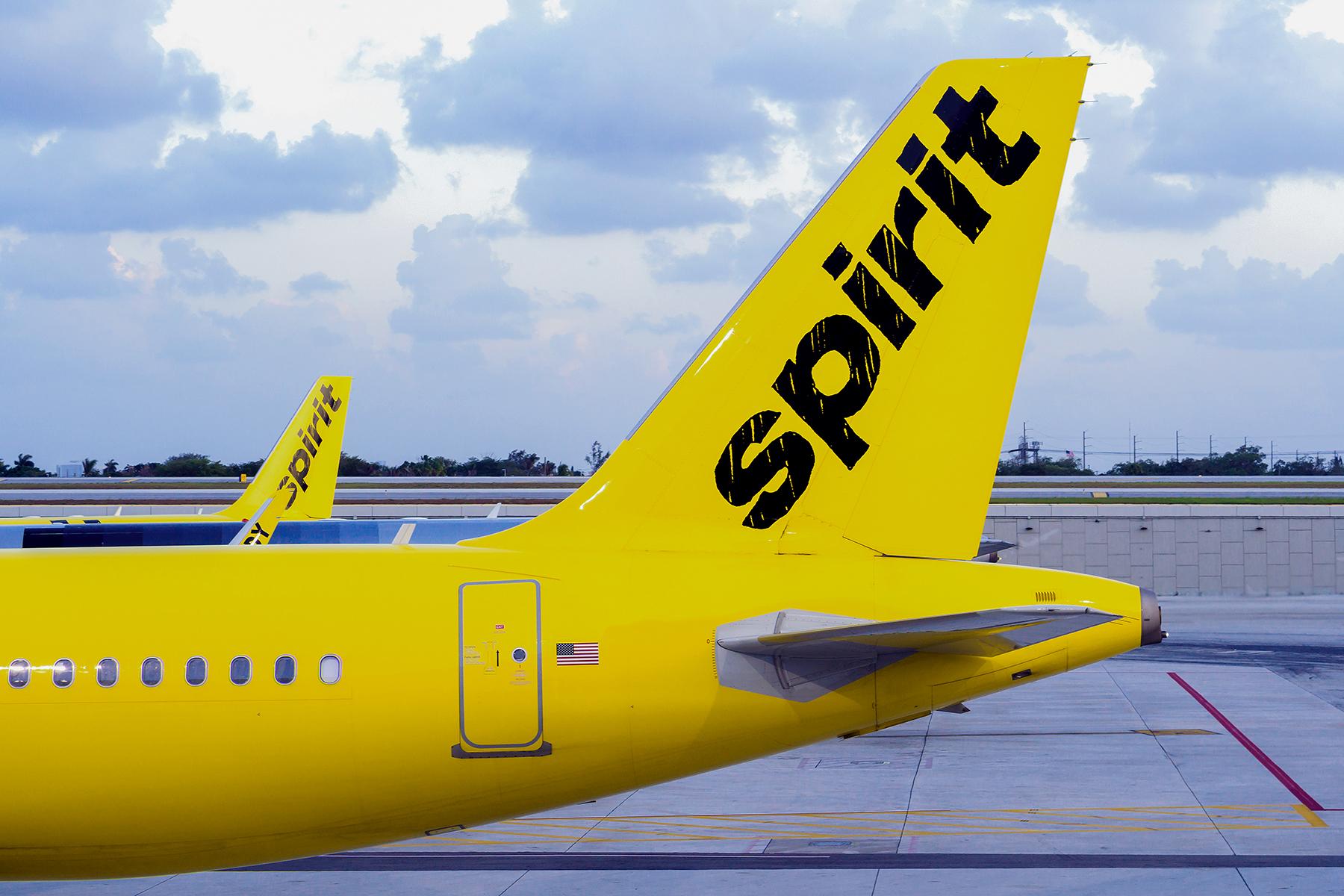The airline will continue to operate through an expedited bankruptcy process.
Spirit Airlines, the country’s largest “Ultra Low Cost Carrier” (ULCC), filed for Chapter 11 bankruptcy Monday in New York. The airline, which has not had a profitable year since 2019, has lost more than $2 Billion in the last five years as it has struggled to recoup its competitive position after the COVID-19 pandemic. The airline will continue to operate through an expedited bankruptcy process.
A planned merger with JetBlue was blocked by a federal judge earlier this year on antitrust concerns. The judge expressed concerns that eliminating Spirit as a competitor would ultimately raise fares and reduce choice for consumers.
Once a profitable industry disruptor that became just as famous for low fares as it did for add-on fees and frustrating customer service, the airline had struggled to adjust after legacy airline competitors began to match its low fares with their own fare types with stripped-down amenities and added restrictions. Much of the post-pandemic airline industry recovery also saw boosts in demand for premium cabins and long-haul flights to Europe—both areas where Spirit doesn’t compete.
So, what happens now, both for Spirit Airlines and the passengers wondering if their tickets will be honored, or if they can safely purchase tickets for next year? We’ve lined up some answers.
Continue Reading Article After Our Video
Recommended Fodor’s Video
How Did Spirit Get Here?
Brett Snyder, author of the popular industry blog Crankyflier told Fodor’s the main issue was one of distraction: “Spirit has seen massive revenue declines from the heady pre-pandemic days. It got distracted while JetBlue was trying to buy the airline, and it failed to prepare for the possibility that the deal wouldn’t go through. Once the deal was blocked by the courts, Spirit was left scrambling to create a functioning business model before its debt came due.”
It’s worth noting that Spirit expects to complete the bankruptcy process early in 2025, because terms have already been negotiated with the airline’s creditors—a process that typically happens during bankruptcy proceedings and can be quite lengthy.
Will Spirit Continue Flying?
Yes. Spirit Airlines will continue to operate normally, and will honor all tickets, flight credits, and loyalty points that it has already issued. The bankruptcy process will primarily affect Spirit’s stockholders and creditors.
Spirit has, however, reduced flying capacity for the last quarter of 2024 and will likely implement further cuts in early 2025, so flights that the airline has already sold tickets for could be retimed, consolidated or eliminated. When airlines have a schedule change that affects already booked passengers, they can rebook at no charge or have their tickets refunded. When an airline makes a schedule change, they inform booked passengers individually, typically by email.
Will Fares Increase?
Fares typically increase whenever any airline reduces the number of seats they’re offering between two cities, as Spirit plans to do as it works through the bankruptcy process. However, the airline will still vigorously compete for passengers in markets where it has other airlines as competitors, and that’s most of the markets they serve.
Other airlines could also see opportunities in markets that Spirit has reduced and add their own capacity, which could also put downward pressure on fares. It’s worth noting, however, that numerous factors affect airfares—not just how many airlines and how many seats are selling tickets in a specific market. Consumer demand is ultimately the biggest driver of airfares, as airlines work to fill aircraft with a mix of fares that will yield the best revenue results for each flight.
Will Employees Lose Their Jobs?
Many of Spirit’s employees are covered by collective bargaining agreements, which dictate what the airline must do in the event of a staff redundancy (which is typical when airlines reduce flights). Earlier this year, Spirit sold 23 aircraft to raise cash, which led to the furlough of hundreds of pilots in October. Additional furloughs already set to occur in January 2025. Other pilots will keep their jobs, but as First Officers instead of Captains.
Furloughs differ from layoffs in that furloughed employees retain the right to return to their jobs if they’re needed again at a future date. Some Spirit employees not covered by collective bargaining agreements, or whose collective bargaining agreements allow for layoffs, could ultimately be out of work as the airline restructures.

